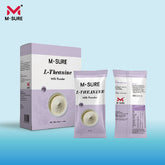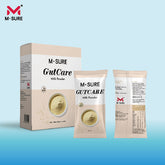The importance of DHA supplementation for children
by
BiotechAusway
03 Sep 2025
🧠 DHA: Essential for Brain & Vision Development
I. Promoting Brain and Intellectual Development
Key Component of Neural Tissue
-
DHA makes up 20% of fatty acids in the cerebral cortex.
-
Essential for neuronal cell membranes → accelerates neural signal transmission.
-
Supports infants’ cognitive abilities, memory, and learning capacity.
Critical Supplementation Window
-
Ages 0–3 = peak period of brain development.
-
Daily intake of ≥100 mg DHA most effectively supports neural network formation.
II. Ensuring Visual System Health
Core Substance in the Retina
-
DHA accounts for ~50% of retinal phospholipids.
-
Directly involved in photoreceptor cell development.
-
Deficiency may impair visual signal processing.
Preventing Vision Deficits
-
Consistent supplementation → improves visual acuity.
-
Reduces early risks of refractive errors.
III. Science-Based Supplementation Strategies
Age-Specific Approaches
| Age Group | Method | Key Considerations |
|---|---|---|
| 0–6 months | Breast milk/formula (no extra needed) | Mothers should ensure adequate DHA intake |
| 6+ months | DHA-rich foods + supplements (if needed) | Prioritise deep-sea fish, algae |
Recommended Dietary Sources
-
Optimal choices: Salmon, sea bass (freshwater DHA), hairtail
-
Serving advice: 2–3 servings weekly (palm-sized portions)
-
Cooking method: Steam or boil (avoid frying) to preserve nutrients
IV. Important Considerations
-
Avoid Overdose & Contaminants: Large predatory fish (e.g., tilefish) may contain heavy metals.
-
Supplement Quality: Algal DHA supplements require >40% purity for efficacy.
-
Rational Use:
-
Children with balanced diets → no mandatory supplements.
-
Preterm infants/special cases → dosage should be guided by a doctor.
-






